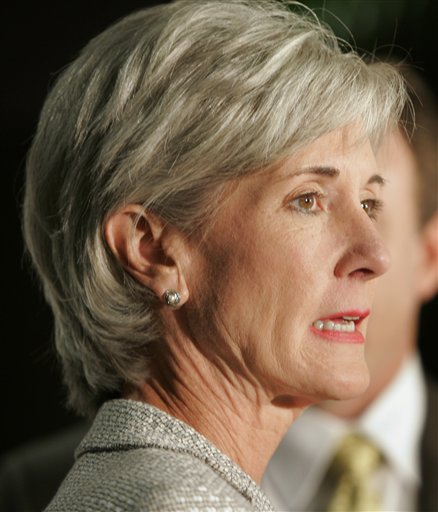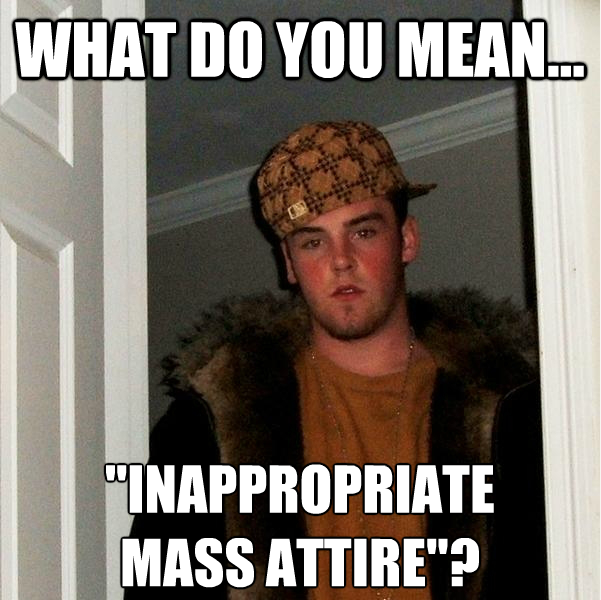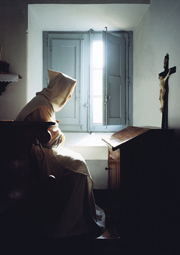To be
honest, I have never really given much thought to the Catholic justices on
the Supreme Court! I know I have been
aware of the religious composition of the Court, but it was brought home to me
again in Tuesday’s (July 23) Vortex, when Michael Voris pointed out that:
The US Supreme Court has nine
judges – three are Jews, six are Catholic. Pretty funny, in a way, that in a Protestant
majority country, there are no Protestants on the highest court in the land.
In that
episode – embedded below, with the full script following – Michael Voris made some
extraordinarily good points (at least, I think so). For instance:
So we’ve all heard the cries
for years now about how pro-abortion Catholic politicians should be
excommunicated, or at the very least, not be allowed to march up and receive Holy
Communion. But how about pro-abortion Catholic JUDGES? Or pro same-sex marriage
Catholic JUDGES?
I admit,
I had never really thought about this before. Here’s another point (my emphases throughout):
 All of this societal decay has
been brought about by Catholic
politicians and jurists. The list is seemingly endless, from Kathleen Sebelius
and her HHS mandate to the Kennedys to the Cuomos to countless others – the leaders who have betrayed this culture are
big name Catholics. They are not alone certainly, but the others who they
have sided with aren’t Catholic.
All of this societal decay has
been brought about by Catholic
politicians and jurists. The list is seemingly endless, from Kathleen Sebelius
and her HHS mandate to the Kennedys to the Cuomos to countless others – the leaders who have betrayed this culture are
big name Catholics. They are not alone certainly, but the others who they
have sided with aren’t Catholic.
And
what are the bishops doing about it? MV asks the question and answers: “Nothing.”
He acknowledges that some bishops may speak to some politicians and judges
behind the scenes, but the point is that not one Catholic leader has received
correction and then reversed himself or herself on issues that concern their
(alleged) Catholic faith. So if the bishops are
doing something, it is having absolutely no effect. And the fact that we can’t see their actions or see any change in the un-Catholic
behavior of various “Catholic” politicians simply causes scandal and results in
more and more Catholics believing that the teachings of the Church are not
binding.
Michael
Voris clearly notes that the emperor is wearing no clothes:
Judge Anthony Kennedy is a
prime example of the old adage – garbage in, garbage out. He votes for evil,
because he has never been told in any meaningful fashion, that there is such a
thing as evil. He has no fear of God, or respect for Absolute Truth. And now, he will be one of the deciding votes when
the HHS mandate of Obamacare is brought to him by the US Bishops’ lawsuit.
There are too many ironies here
to count. A majority Catholic Court
continues to vote against natural law
principles enunciated by their Church; and the very bishops who have, over the
course of their careers, done next to
nothing to fight against these intrinsic evils, but allowed them to fester
in their schools, seminaries, parishes and chanceries, are now going to come
before this same court and say that they should not be forced to pay for insurance
coverage for contraception.
…
So a Catholic judge who has
ruled time and time again as though he
is not Catholic, is gonna be voting on an issue that is being presented as a non-Catholic issue, by
the very Catholic leaders who have spent their careers side-stepping and
excuse-making for their failure to
boldly teach Catholic truth.
A judge who, in practice, denies his Catholicism, being appealed
to by bishops who have, in practice,
denied their Catholicism – or, at
the very least, their duty to teach
it fully – arguing about a law that denies
the truth about a Catholic teaching… ALL pretending this has nothing to do with Catholicism.
“Supreme
Irony” indeed. Michael Voris, rem acu
tetigisti (you have hit the nail on the head).
I’ve
said it before and I’ll say it again: folks, we are in a world of hurt. Our
Church leaders need our prayers more and more every day. As MV concludes:
If there was ever a crowd that
needed prayers my fellow Catholics, it is our leaders. Pray for them, that they
may see the destruction their inaction and double speak and accommodation has
wrought.
Pray
and fast.
The script:
So
we’ve all heard the cries for years now about how pro-abortion Catholic
politicians should be excommunicated, or at the very least, not be allowed to
march up and receive Holy Communion.
But how
about pro-abortion Catholic JUDGES? Or pro same-sex marriage Catholic JUDGES? After
all, what’s good for the goose is good for the gander right? What would make
Catholic judges who render opinions supporting intrinsic evil and more exempt
from excommunication than Catholic politicians who vote in favor of the laws
that the judges rule on?
And we
need look no further than the United States Supreme Court, which just recently voted
to essentially uphold same-sex marriage. No, they didn’t go QUITE that far, but
they went far enough that the militant homosexuals are cheering and preening
and pro-family forces are crying and very worried – as indeed they should be.
The US
Supreme Court has nine judges – three are Jews, six are Catholic. Pretty funny,
in a way, that in a Protestant majority country, there are no Protestants on
the highest court in the land. Strange, huh?
Anyway,
one Catholic judge in particular – Justice Anthony Kennedy – is the “Biden/Pelosi
Catholic” of the high court. He never misses a chance to vote AGAINST truth and
natural law and IN FAVOR of intrinsic evil. Never. He cast his vote in favor of
killing unborn children in the infamous Casey vs. Planned Parenthood case of
1992 which upheld Roe vs. Wade – actually strengthened it, in fact.
Roughly
10 years later, he would again side with the majority in Lawrence vs. Texas, which
struck down anti-sodomy laws as unconstitutional. When that happened in 2003, same-sex
marriage was virtually assured of becoming legal in every state.
And
now, ten years later again, Kennedy is once again on the side of evil by
supporting same-sex marriage – certainly if in principle if not in actual fact.
His vote – with the majority of the court, which is majority Catholic, has gone
a long way to clearing the decks for women engaging in sexual conduct with
other women and men with men to be called marriage.
All of
this societal decay has been brought about by Catholic politicians and jurists.
The list is seemingly endless, from Kathleen Sebelius and her HHS mandate to
the Kennedys to the Cuomos to countless others – the leaders who have betrayed
this culture are big name Catholics. They are not alone certainly, but the
others who they have sided with aren’t Catholic.
So,
question – what are the bishops doing about it? Answer – absolutely nothing. Do
they talk with these scoundrels – and that is what they are – behind the scenes?
Probably, at least in some cases. What good has it done, presuming they have
had private conversations with them? Absolutely none.
Name
one – one! – premiere Catholic politicians or judge who after being instructed
in the faith with regard to intrinsic evils like abortion and homosexual marriage
has reversed himself or herself.
You
can’t because none of them has.
[Justice]
Kennedy is a PERFECT living breathing example of all that has gone wrong in the
Church in the United States. He calls himself Catholic. Defies the laws of God.
Is never rebuked by those charged with rebuking him, is totally free to free
receive Holy Communion, is considered a Catholic in good standing. Meanwhile -
the abortions keep piling up and the culture made more evil by acceptance and
promotion of evil.
This is
what decades of backing liberals and their causes by too many bishops has resulted
in. This is what decades of ignoring the spiritual matters and realities and decomposition
that has occurred has resulted in.
While
the emphasis was and STILL is on social justice issues – which we know is code speak
for democratic party double speak, the REAL matters – the ONLY ones that actually
count – have been left to die a slow death.
Catholic
education has become a laughing stock. It’s neither Catholic, nor much of an education.
Catechesis bears no resemblance at all to natural law, intrinsic truth and beauty
and goodness. Liturgy has conditioned the vast amount of Catholics to not only expect,
but actually enjoy a watered-down presentation of the faith each Sunday
complete with a Mass so rife with abuses and stylistic choices that it looks
more Protestant than Catholic.
Judge
Anthony Kennedy is a prime example of the old adage – garbage in, garbage out.
He
votes for evil, because he has never been told in any meaningful fashion, that
there is such a thing as evil. He has no fear of God, or respect for Absolute
Truth. And now, he will be one of the deciding votes when the HHS mandate of
Obamacare is brought to him by the US Bishops’ lawsuit.
There
are too many ironies here to count. A majority Catholic Court continues to vote
against natural law principles enunciated by their Church; and the very bishops
who have, over the course of their careers, done next to nothing to fight
against these intrinsic evils, but allowed them to fester in their schools,
seminaries, parishes and chanceries are now going to come before this same
court and say that they should not be forced to pay for insurance coverage for
contraception.
And
what’s rich about their argument is, it’s not based on the evil of
contraception –which is what a bishop should be arguing, religious pluralism be
damned – but rather, it’s based on the vague and moving target notion of
religious “liberty” – a thoroughly UNCatholic notion if there ever was one.
So a
Catholic judge who has ruled time and time again as though he is not Catholic,
is gonna be voting on an issue that is being presented as a non-Catholic issue,
by the very
Catholic
leaders who have spent their careers side-stepping and excuse-making for their failure
to boldly teach Catholic truth.
A judge
who, in practice, denies his Catholicism, being appealed to by bishops who
have, in practice, denied their Catholicism – or, at the very least, their duty
to teach it fully – arguing about a law that denies the truth about a Catholic
teaching… ALL pretending this has nothing to do with Catholicism.
And all
the while – this very judge is the shining example of the very system which has
produced all this spiritual insanity.
Judge
Kennedy is the poster boy of the religious-liberty strewn thoroughly modern-going
pluralistic society Church many of these bishops have promoted and still
publically support. The Supreme Irony of the Catholic Church in America is a
Supreme Court Justice.
No one
could make this up.
If
there was ever a crowd that needed prayers my fellow Catholics, it is our
leaders. Pray for them, that they may see the destruction their inaction and
double speak and accommodation has wrought.


 Another example: We were at Mass
and a mom, her son, and her daughter stepped into the pew in front of us. The
daughter, about 14 years of age, had on a bikini with a shear sarong over it,
and was soaking wet; she must have been grabbed out of the pool to go to Mass.
My husband and other men were staring at the ceiling. Finally, the woman behind
me got out of her seat and told the mother to take her daughter to the back of
the Church immediately, which she did.
Another example: We were at Mass
and a mom, her son, and her daughter stepped into the pew in front of us. The
daughter, about 14 years of age, had on a bikini with a shear sarong over it,
and was soaking wet; she must have been grabbed out of the pool to go to Mass.
My husband and other men were staring at the ceiling. Finally, the woman behind
me got out of her seat and told the mother to take her daughter to the back of
the Church immediately, which she did.

 And you know what? When I think of the snide laughter we all
enjoy when we watch one of the Wal-Mart videos with hideously-dressed individuals,
I can’t help but think it would be more charitable to actually take the person
aside and explain that it looks like they are wearing no clothes, or that their
bulges are, well, bulging…or whatever. It’s as if we “must not judge” when at
Mass, but it’s okay to snicker at the candid videos from Wal-Mart.
And you know what? When I think of the snide laughter we all
enjoy when we watch one of the Wal-Mart videos with hideously-dressed individuals,
I can’t help but think it would be more charitable to actually take the person
aside and explain that it looks like they are wearing no clothes, or that their
bulges are, well, bulging…or whatever. It’s as if we “must not judge” when at
Mass, but it’s okay to snicker at the candid videos from Wal-Mart. There you have it. If you are concerned about liturgical
abuse, you are the “liturgy police”, and if you are concerned about the
disrespect shown to Our Lord at Mass by irreverent and immodest dress, then you
are being “holier than thou”, and in either case, you are acting without love.
There you have it. If you are concerned about liturgical
abuse, you are the “liturgy police”, and if you are concerned about the
disrespect shown to Our Lord at Mass by irreverent and immodest dress, then you
are being “holier than thou”, and in either case, you are acting without love. ZENIT has an exclusive
interview with Cardinal Raymond Leo Burke today. The interview was
conducted “on the sidelines of Sacra
Liturgia 2013, a major international conference on the liturgy held in Rome
at the end of June”. Cardinal Burke has some interesting things to say – be sure
to read the entire
interview!
ZENIT has an exclusive
interview with Cardinal Raymond Leo Burke today. The interview was
conducted “on the sidelines of Sacra
Liturgia 2013, a major international conference on the liturgy held in Rome
at the end of June”. Cardinal Burke has some interesting things to say – be sure
to read the entire
interview! All of this societal decay has
been brought about by Catholic
politicians and jurists. The list is seemingly endless, from Kathleen Sebelius
and her HHS mandate to the Kennedys to the Cuomos to countless others – the leaders who have betrayed this culture are
big name Catholics. They are not alone certainly, but the others who they
have sided with aren’t Catholic.
All of this societal decay has
been brought about by Catholic
politicians and jurists. The list is seemingly endless, from Kathleen Sebelius
and her HHS mandate to the Kennedys to the Cuomos to countless others – the leaders who have betrayed this culture are
big name Catholics. They are not alone certainly, but the others who they
have sided with aren’t Catholic. A few weeks ago, the Holy Father was quoted as making remarks that seem to indicate
that he feels that the “doing of charitable deeds” is the only path to God, and
that people who devote themselves to the contemplative life risk “losing
themselves along the way”, and that those who “choose the path of penance and
fasting” are Pelagians.
A few weeks ago, the Holy Father was quoted as making remarks that seem to indicate
that he feels that the “doing of charitable deeds” is the only path to God, and
that people who devote themselves to the contemplative life risk “losing
themselves along the way”, and that those who “choose the path of penance and
fasting” are Pelagians. [1]
All those, who, according to their rule, lead a life of solitude remote from
the din and follies of the world, and who not only assiduously contemplate the
divine mysteries and the eternal truths, and pour forth ardent and continual
prayers to God that his kingdom may flourish and be daily spread more widely,
but who also atone for the sins of other men still more than for their own by
mortification, prescribed or voluntary, of mind and body - such indeed must
be said to have chosen the better part, like Mary of Bethany.
[1]
All those, who, according to their rule, lead a life of solitude remote from
the din and follies of the world, and who not only assiduously contemplate the
divine mysteries and the eternal truths, and pour forth ardent and continual
prayers to God that his kingdom may flourish and be daily spread more widely,
but who also atone for the sins of other men still more than for their own by
mortification, prescribed or voluntary, of mind and body - such indeed must
be said to have chosen the better part, like Mary of Bethany.